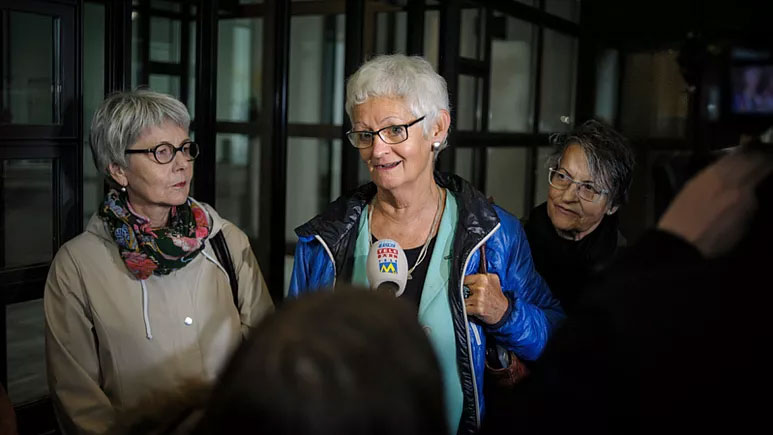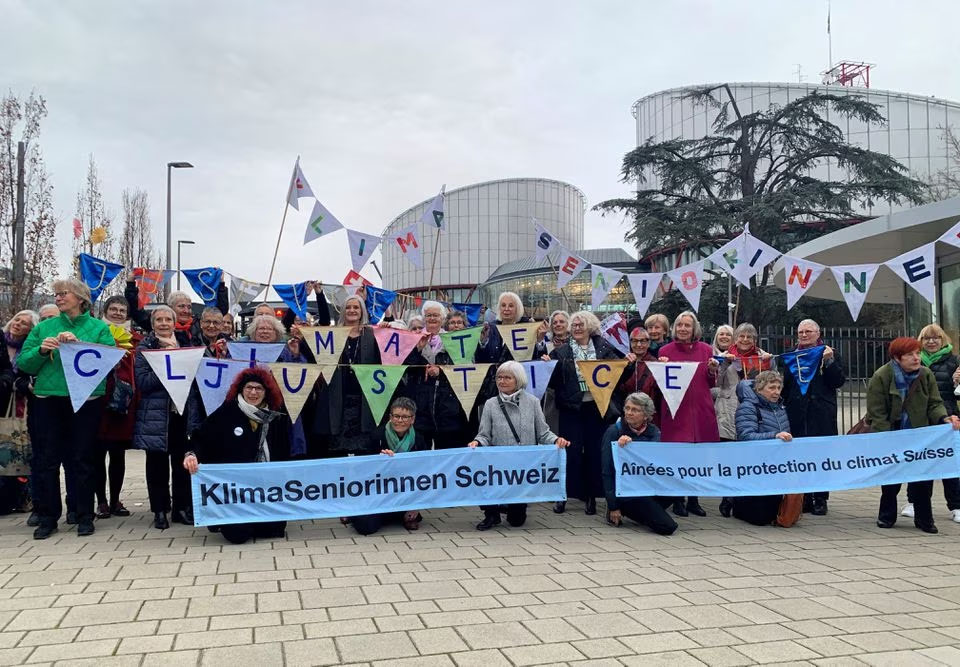In a first for recognition of climate stability as a human right, the Swiss Senior Women for Climate Protection (KlimaSeniorinnen) made history by taking their government to the top human rights court in Europe claiming that its weak response to the climate crisis violates their human rights. Having exhausted their legal options in Switzerland where their 2016 case was defeated, they decided to escalate action by taking it to the ECtHR in Strasbourg. The case has been referred to the judges of the Grand Chamber, the court where only the most important cases are heard.
The group, with an average age of 73, has a membership of over 2000 senior women. They were joined by another group comprising of four individuals between 80 and 90 years old. They are claiming that government inaction of rising temperatures exposes them to the risk of dying during heatwaves.

These Swiss seniors want to enforce their basic rights for health — for themselves and for the next generation (Source euronews.green, Copyright: Greenpeace / Ex-Press / Flurin Bertschinger)
Their concern was that the Swiss government failed them in their promise to keep global temperatures below 2 degrees Celsius with their Nationally Determined Contributions (NDCs) seeking to reduce emissions by at least 50% by 2030 and to become completely carbon neutral by 2050. However, the Swiss people voted out plan related to specific measures to be taken in a 2021 referendum resulting in a watered down version of the law being currently worked on within the legal system of the country.
Corina Heri, researcher at the Institute of Law at the University of Zurich says that this is the first time that the highest human rights court in Europe has accepted a climate case and this is a strong position of intent that has wider implications and repercussions. While the outcome of the case will only be applicable to Switzerland, it is very possible that a positive ruling my open up the gates to many others not only within the 46 states of the European Council but the entire world.

A group from the Senior Women for Climate Protection association hold banners outside the European Court of Human Rights in Strasbourg, France March 29, 2023. (Copyright: REUTERS/Emma Farge)





